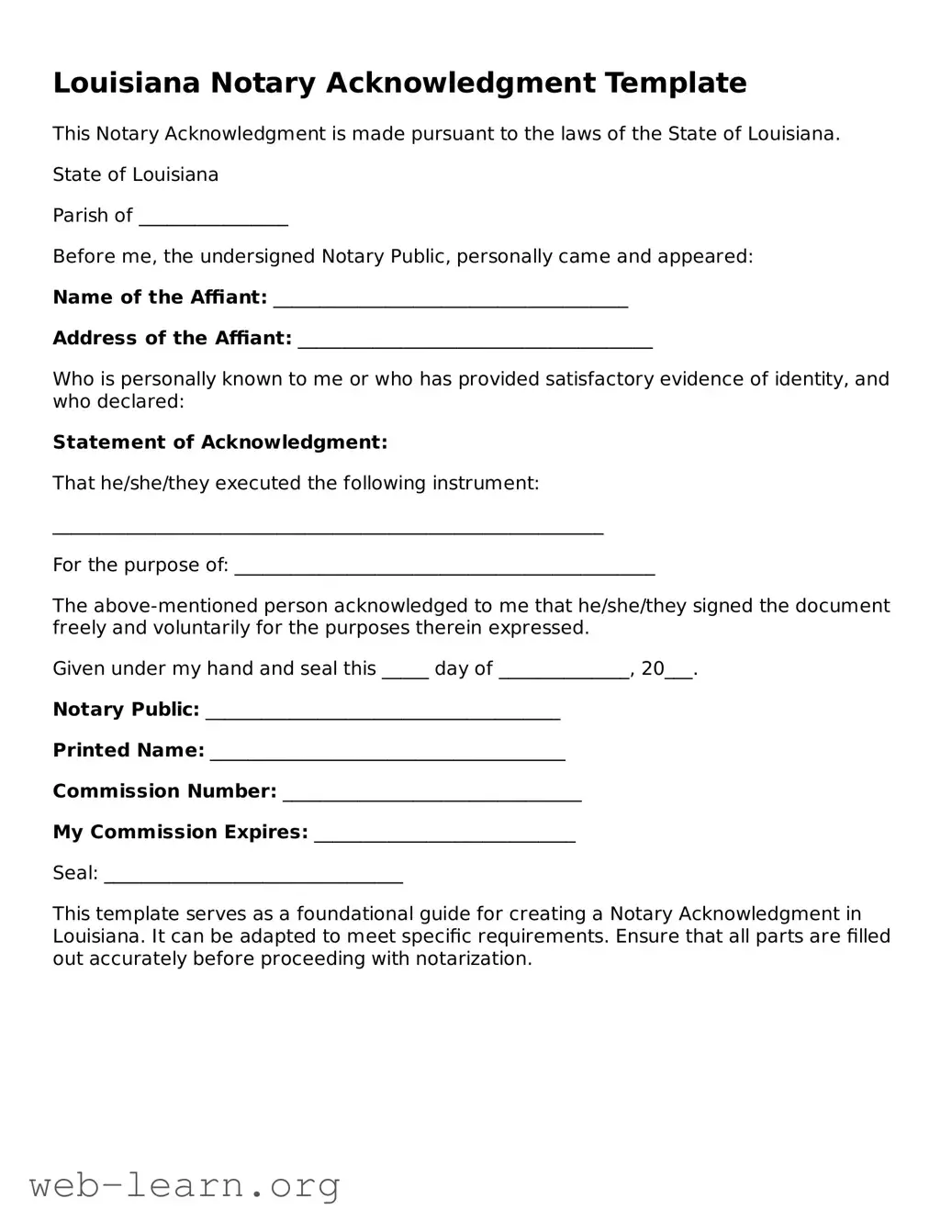Louisiana Notary Acknowledgment Template
This Notary Acknowledgment is made pursuant to the laws of the State of Louisiana.
State of Louisiana
Parish of ________________
Before me, the undersigned Notary Public, personally came and appeared:
Name of the Affiant: ______________________________________
Address of the Affiant: ______________________________________
Who is personally known to me or who has provided satisfactory evidence of identity, and who declared:
Statement of Acknowledgment:
That he/she/they executed the following instrument:
___________________________________________________________
For the purpose of: _____________________________________________
The above-mentioned person acknowledged to me that he/she/they signed the document freely and voluntarily for the purposes therein expressed.
Given under my hand and seal this _____ day of ______________, 20___.
Notary Public: ______________________________________
Printed Name: ______________________________________
Commission Number: ________________________________
My Commission Expires: ____________________________
Seal: ________________________________
This template serves as a foundational guide for creating a Notary Acknowledgment in Louisiana. It can be adapted to meet specific requirements. Ensure that all parts are filled out accurately before proceeding with notarization.
